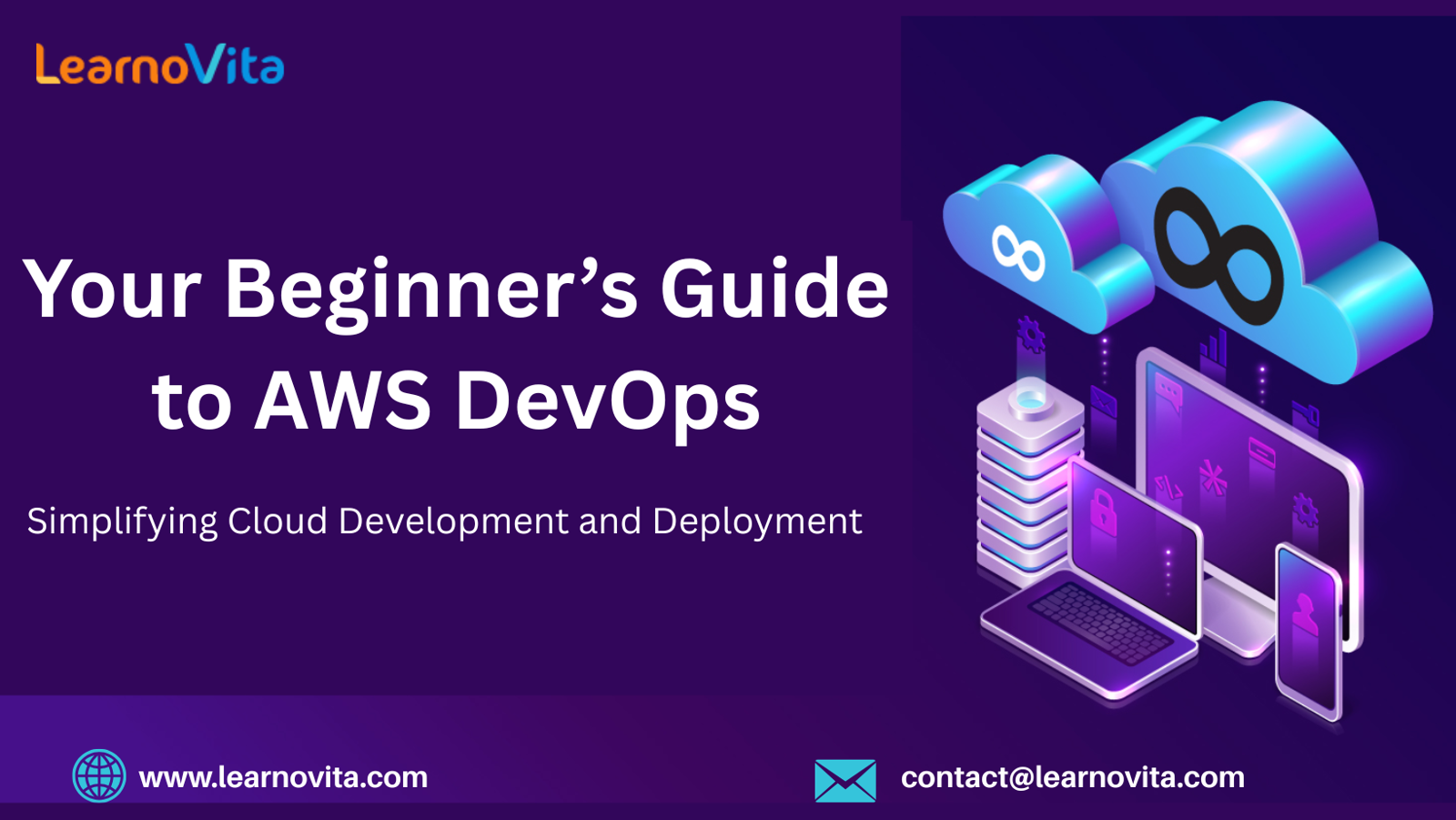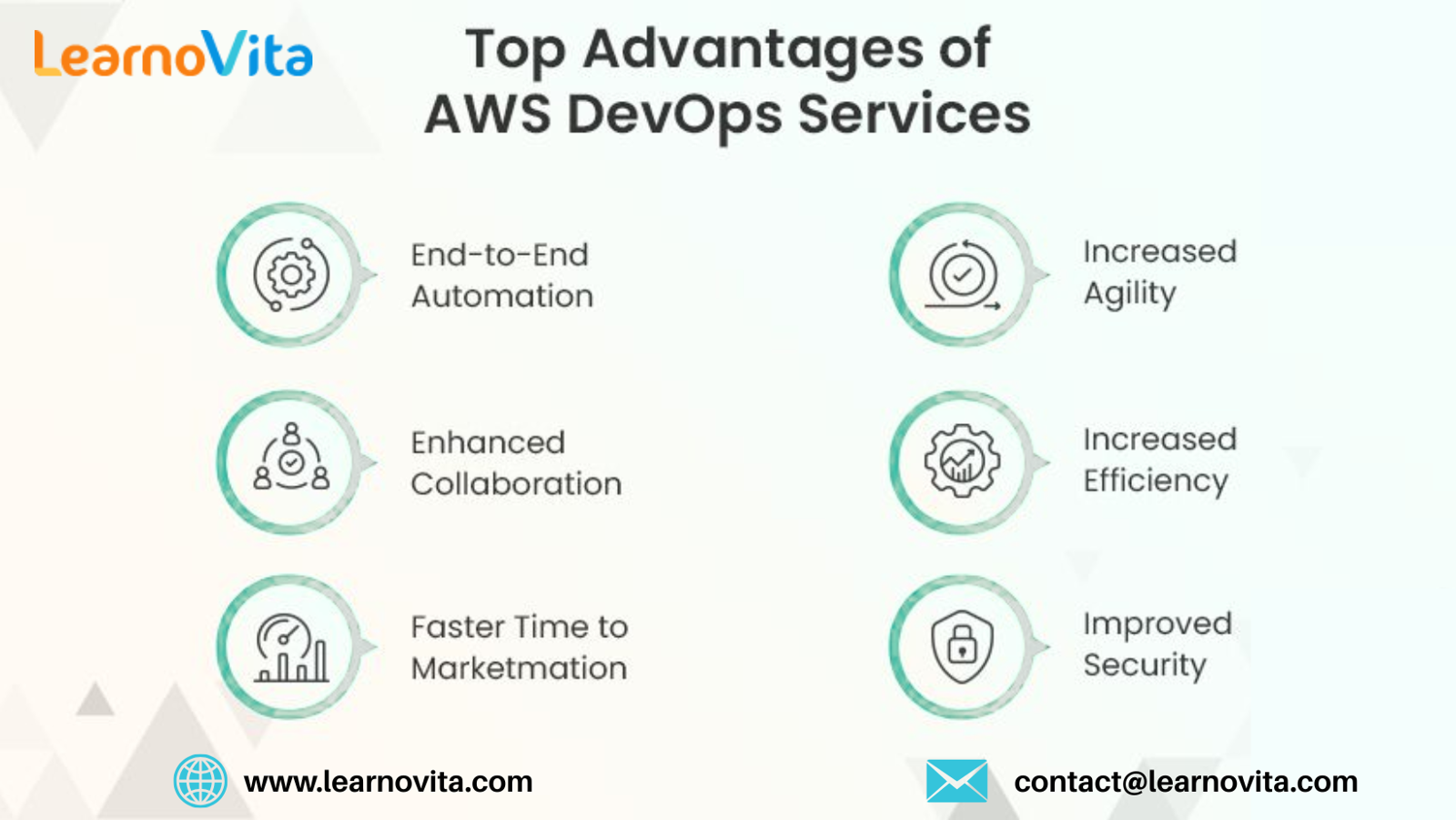In today’s tech-driven world, delivering applications quickly and reliably is critical for staying competitive. The combination of DevOps methodologies and Amazon Web Services (AWS) enables teams to build, test, and deploy software more efficiently through automation and scalability. This guide is crafted for those just beginning their DevOps journey and provides a simple, clear introduction to how AWS supports and enhances DevOps workflows.
What is AWS DevOps?
AWS DevOps refers to applying DevOps principles using AWS services to streamline the software development lifecycle. These principles include continuous integration, continuous deployment, infrastructure as code, and active monitoring. By leveraging AWS, development and operations teams can work together more efficiently, automate repetitive tasks, and ensure fast, reliable deployments all within a secure cloud environment. Unlock the power of cloud automation and continuous delivery with our AWS DevOps Online Course, designed to help you master tools like CodePipeline, CloudFormation, and CI/CD on AWS.

Why AWS is a Strong Platform for DevOps
AWS provides everything you need to implement DevOps successfully. From automated code pipelines to real-time monitoring tools, AWS integrates these capabilities into a seamless, cloud-native experience. Whether you’re deploying a small app or managing an enterprise-level system, AWS supports scalability, flexibility, and security making it ideal for DevOps adoption.
AWS DevOps Tools You Should Know
AWS CodeCommit: A Git-based service for securely managing source code repositories.
AWS CodeBuild: A scalable build service that compiles source code, runs tests, and packages applications.
AWS CodePipeline: Automates the flow of your application from code commit to deployment.
AWS CodeDeploy: Enables automated application deployment to AWS services or on-premises servers.
AWS CloudFormation: Facilitates infrastructure as code using declarative configuration templates.
Amazon CloudWatch: Provides visibility into performance metrics, logs, and system health across your AWS environment.
Creating an Automated Workflow on AWS
To get started with DevOps on AWS, you can build a basic automation pipeline. Store your code in CodeCommit, trigger build jobs using CodeBuild, and use CodeDeploy to roll out updates. This process can be fully automated with CodePipeline, allowing each stage to flow smoothly without manual involvement. This workflow reduces human error, ensures consistency, and speeds up delivery.
Advantages of AWS DevOps
Implementing DevOps on AWS helps teams deliver software faster and with greater reliability. Automation replaces repetitive manual tasks, while AWS services ensure high availability and fault tolerance. The platform is also highly scalable, adapting to workloads of all sizes, and supports hybrid deployments, serverless computing, and containerized applications all of which increase operational flexibility. Our Best Training & Placement Program is designed to equip you with industry-ready skills and ensure successful job placement in top companies.

Common DevOps Use Cases with AWS
CI/CD Pipelines: Streamline development and deployment for web apps and APIs.
Microservices Management: Use containers and Lambda functions for modular and scalable app architecture.
Infrastructure Automation: Provision servers and services using tools like CloudFormation or AWS CDK.
Observability & Monitoring: Track application health using CloudWatch dashboards, alarms, and logs.
Tips for Beginners in AWS DevOps
If you’re just getting started, begin by learning the fundamentals Git for version control, CI/CD concepts, and basic cloud infrastructure. Use AWS Free Tier to experiment without incurring charges. Start with a simple project such as deploying a static site or a basic API, and gradually introduce build automation, testing, and monitoring. The key is to practice regularly and build real-world scenarios as your confidence grows.
Recommended AWS Certifications for DevOps Roles
AWS Certified DevOps Engineer – Professional: For advanced users automating deployment and infrastructure at scale.
AWS Certified Developer – Associate: Ideal for developers working with AWS services to build and deploy applications.
AWS Certified Solutions Architect – Associate: Provides a strong foundation in designing robust and scalable cloud systems.
These certifications not only validate your skills but also improve your chances in the job market.
Conclusion
Mastering DevOps with AWS gives you the tools and mindset needed to build faster, smarter, and more resilient software systems. With integrated services for automation, deployment, and monitoring, AWS empowers beginners to create professional-grade development workflows from the start. Begin with the basics, keep exploring new tools, and continuously improve your processes. Over time, AWS DevOps will not only simplify your technical workflow, it’ll also help launch your career in the cloud.


Write a comment ...